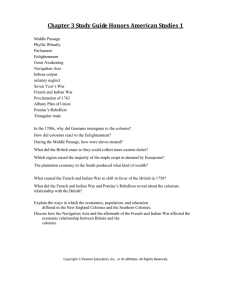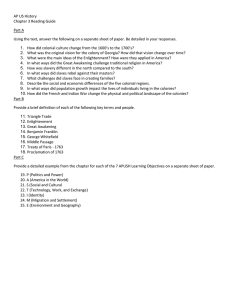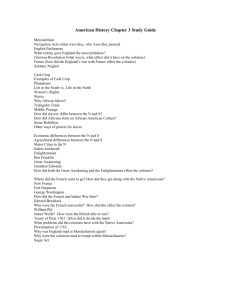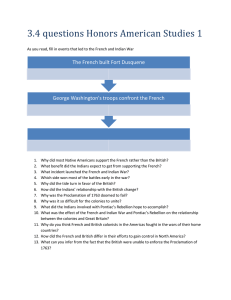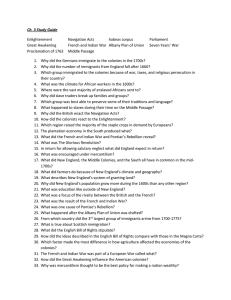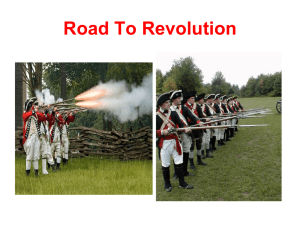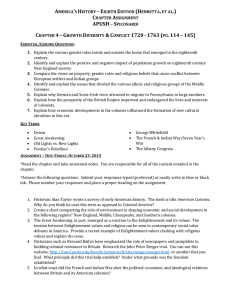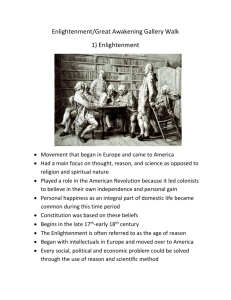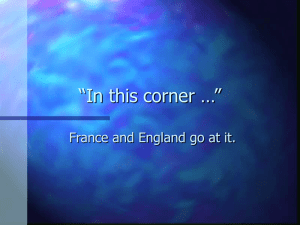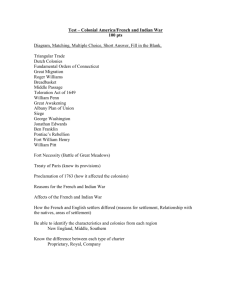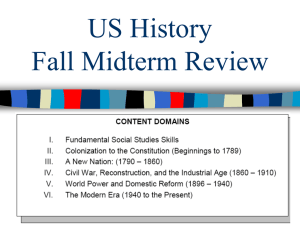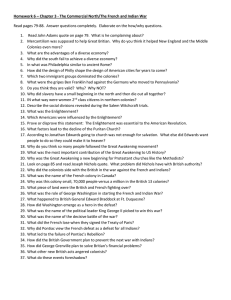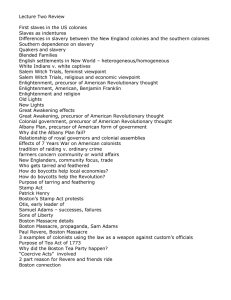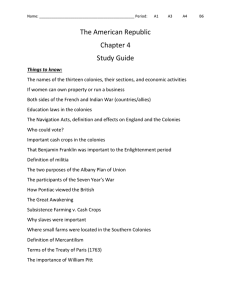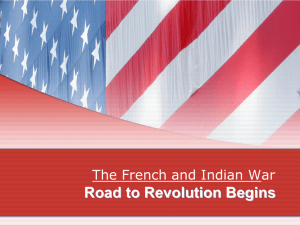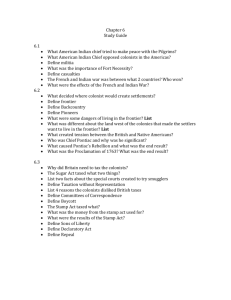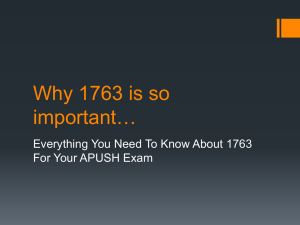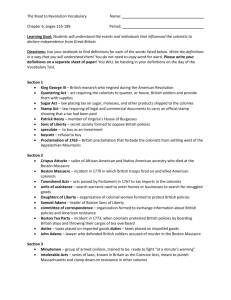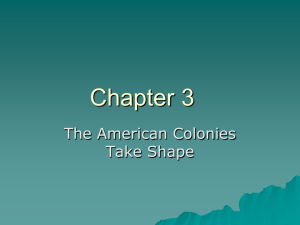Chapter 3 Study Guide
advertisement
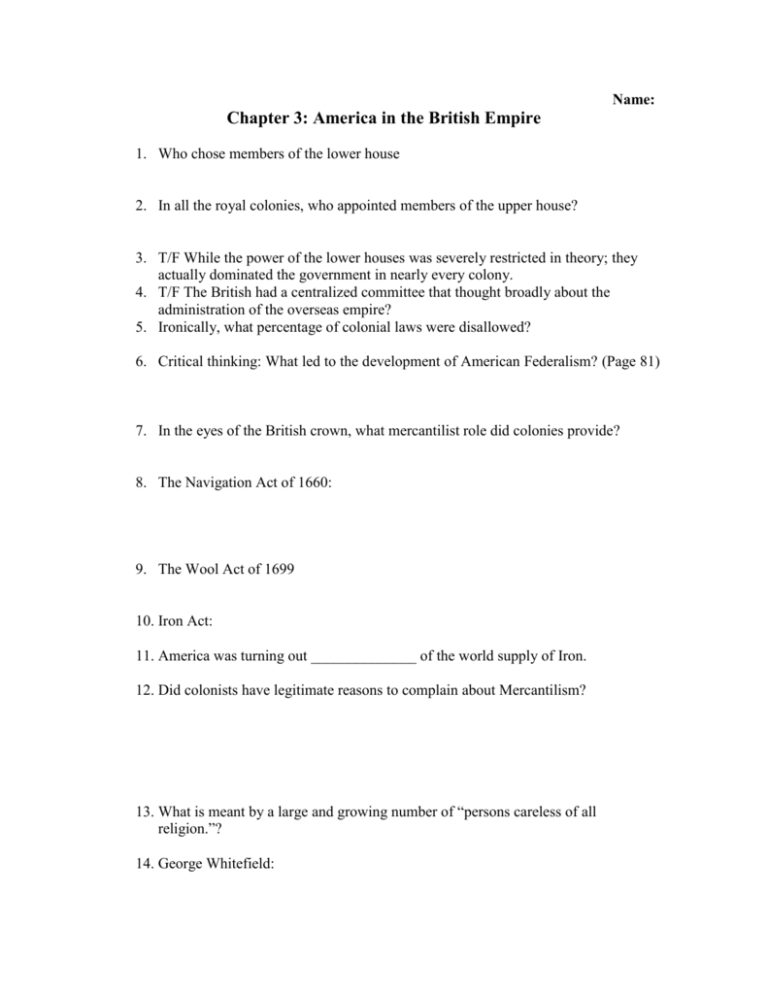
Name: Chapter 3: America in the British Empire 1. Who chose members of the lower house 2. In all the royal colonies, who appointed members of the upper house? 3. T/F While the power of the lower houses was severely restricted in theory; they actually dominated the government in nearly every colony. 4. T/F The British had a centralized committee that thought broadly about the administration of the overseas empire? 5. Ironically, what percentage of colonial laws were disallowed? 6. Critical thinking: What led to the development of American Federalism? (Page 81) 7. In the eyes of the British crown, what mercantilist role did colonies provide? 8. The Navigation Act of 1660: 9. The Wool Act of 1699 10. Iron Act: 11. America was turning out ______________ of the world supply of Iron. 12. Did colonists have legitimate reasons to complain about Mercantilism? 13. What is meant by a large and growing number of “persons careless of all religion.”? 14. George Whitefield: 15. Explain the difference between “Old Lights” and New Lights”? 16. In your own words, define “The Great Awakening.” 17. What was unique about entry to Jonathon Edwards church? 18. What is a historical first about The Great Awakening? 19. Deism: 20. Your textbook does a horrid job of explaining The Enlightenment or “Age of Reason.” Please attempt to write your own definition for the Enlightenment and we will discuss it in class. 21. What did Benjamin Franklin’s Junto club do? 22. List Benjamin Franklin’s achievements 23. What was the outcome of King William’s War (1689-1697)? 24. What was the outcome of Queen Anne’s War (The War of Spanish Succession 1702-1713) 25. What was the outcome of King George’s War (War of the Austrian Succession, 1740-1748) 26. What was unique about Eunice Williams (7 years old) capture? 27. Who was the 21 year old surveyor sent to deal with the French outpost in Ohio? 28. What were the results of the French and Indian War (7 Years War) during the Treaty of Paris in 1763? 29. “No honest American could deny that the victory had been won chiefly by _________ troops and with _________ gold.” How much did the British spend? 30. What would become the problem with having a larger dominion? 31. The Albany Plan of 1754: 32. How did the British soldiers view the American colonial solders during the French and Indian War? 33. T/F Ottawa Chief Pontiac’s Pontiac Rebellion failed to turn back white settlers. 34. What was the British goal of the Proclamation of 1763? 35. Critical Thinking: How did the French and Indian War help bring about the American Revolution? 36. T/F The Sugar Act placed tariffs on sugar, coffee, wines and other things imported into America in substantial amounts. 37. What did the Stamp Act tax? 38. Who were “The Liberty Boys”? What did they do? 39. Why was “taxation without representation” so alarming to colonists? 40. The Quartering Act: 41. T/F The Declaratory Act Stated that colonies were subordinate and that Parliament could enact any law it wished to bind the colonies and people to America. 42. What were the Townshend Duties? 43. How many Bostonians died in the Boston Massacre? 44. Why was Paul Revere’s 1770 Boston Massacre engraving such a blatant piece of propaganda? 45. How did the Boston Port Act restrict Boston Commerce? 46. Which was the only state that failed to send delegates to the First Continental Congress in Philadelphia in June of 1774? 47. What did John Adams sight as the foundation of all free government?
